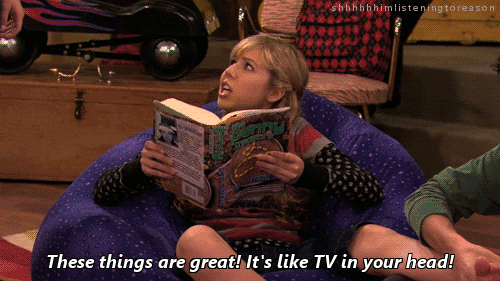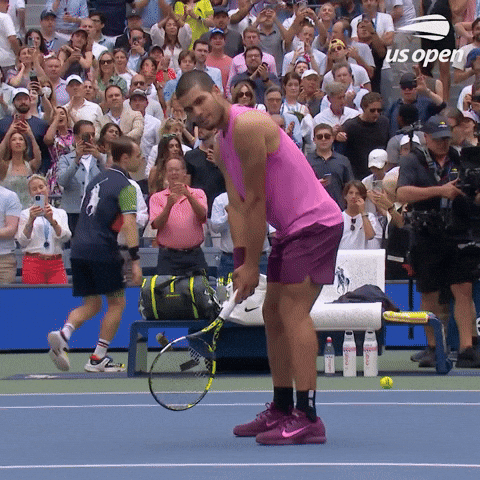What Happened When I Cut Back on Social Media
I cut back on my social media usage and noticed some surprising changes in focus, cravings, and happiness. Here's what happen when I started to log off more.

If you've been enjoying The Copper Den, please consider subscribing so that the next post gets delivered straight to your inbox!
This blog post marks my third and final post in a miniseries about my relationship with social media.
The first post focused on some of the negative ideas relating to social media and why it’s so bad for us.
The second post discussed some of the ways I’ve gotten my screen time down in recent weeks.
This final post will talk about how I’m feeling and some changes I’ve noticed. My hope is that it will be a source of encouragement.
Gym Moments with the Moth
I worry that each of these examples might qualify as placebos. Correlation doesn’t imply causation after all, but I’ll share them, nevertheless.
The first surprising shift came when I was at the gym listening to The Moth podcast.
The Moth is a storytelling podcast where people share stories from their lives relating to a certain topic. The topic that week was “acceptance.”
A woman told a story about dealing with Bell’s palsy. She started experiencing symptoms while pregnant, and the symptoms persisted afterwards.
She struggled with looking in the mirror and seeing a face that was asymmetrical in a world that lauds symmetry.
The storyteller described her anguish, but the story took a turn when she recounted how her husband reminded her that he still found her very beautiful. The woman choked up when telling this story, and I noticed that I did too.

I’m not one to get particularly choked up. Movies will make me sad, but I often feel it internally and not externally.
This story made me react. I feel like that doesn’t happen when I numb myself by regularly scrolling social media.
I think I was more present, focusing on the story in between sets. That presence allowed me to feel the weight of the story more clearly.
Presence was key, and that’s something I’ve definitely felt more of with less screen time.
Back to Books
In the past couple years, I’ve fallen back in love with reading.
I read a lot particularly when I find a series I love. The Stormlight Archive and Red Rising are two of my favorites.
At certain points, I fall into reading slumps. It seems like so much more fun to scroll on my phone for a couple minutes instead of picking up a book I may or may not enjoy.
A couple days after I set up some of the tools I mentioned, I noticed a change.
One Saturday morning, I woke up earlier than normal. Instead of picking up my phone or turning on the TV, I decided to pick up my book and read for a little bit.

It was quite enjoyable. I didn’t feel the lure of my phone. I was able to just pick up my book and read.
Spending less time on my phone led me back to a habit I greatly enjoy: reading.
Watching the US Open
Most people would agree that reading is a productive pastime, but is watching TV?
Normally, I’d have sports on and only half watch. I’d scroll social media or play some video games while the game was on in the background.
I took the multitasking advice to heart, though, and I decided to just watch what I was watching.
At the time, the US Open was on. I tuned into the matches with full focus. And I found myself enjoying the points much more. I’d cheer after great points, and the experience was overall more enjoyable.

Focusing on one task, regardless of whether its productive or just relaxing, helps you enjoy that task more.
Fewer Cravings
The most surprising area I noticed after using my phone less wasn’t related to focus at all. I actually noticed that my cravings decreased.
If you know me, you might know that I have quite the sweet tooth. Ice cream is possibly my favorite thing in the world.
I noticed that when my screen time decreased, I felt less of an urge to go for a sweet treat I really didn’t want.
I’m no brain expert, but I have a hypothesis as to why this is the case.
From my first blog post in the series, we know that social media causes dopamine to spike in your brain. Well, sweet treats and other rewards cause this too.
My amateur hunch is that when I use social media a lot, my dopamine spikes, and my brain looks for any possible way to keep this high going regardless of whether the source is social media or sweet foods.
With a decrease in my screen time, my dopamine wasn’t spiking as much, so my brain didn’t experience these cravings to keep the ride going.
Maybe I’m totally off-base here, but I’ll take less cravings regardless of whether it’s directly or indirectly related to using social media less.
Steps in the Right Direction
I was surprised at how quickly I experienced benefits from reducing my screen time.
I’ve found that these shifts make life a little more enjoyable. Each has caused my overall happiness to go up.
Social media is a constant force in our lives.
In the three weeks it’s taken me to publish these posts, I’ve already felt the lure back. I’ve had days where I’ve spent more than I’d like on my phone, but I’m trying to not let it discourage me.
I have the tools from my last post. I have my reasons why I want to get off social media.
If I have a day of heavy phone use, I might explore what led to that. Did I not have other things to do? Could I be more restrictive using an app like JOMO?
I’ve used the relationship analogy frequently throughout this miniseries, and I feel even more strongly about it as I come to the end.
Social media isn’t static. It’s constantly evolving. We can’t expect the same habits to work if we want to keep up.

My only request is that you take a few minutes to consider what you want your relationship with social media to look like. What are some baby steps you can take to move in the direction you want?
You don’t need to move the whole world at once. Sometimes, all it takes is a step in the right direction.
